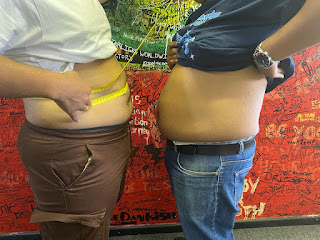South African Human Rights Commission talks about Xenophobia
Human Rights on Sakhisizwe had us speaking to Lesego Eugene Raphalane - Advocacy Officer of The South African Human Rights Commission (from the Western Cape Provincial Office) about Xenophobia.
The South African Human Rights Commission was inaugurated in October 1995 as an independent chapter nine institution. It draws its mandate from the South African Constitution by way of the Human Rights Commission Act of 1994. It identifies, discusses and integrates strategic priority areas in line with the Human Rights Matrix.
Raphalane defines Xenophobia as fear or hatred of people from foreign countries. He brings to light "Afrophobia" which he describes as a hatred toward fellow African nationals, reiterating that the Commission condemns all discriminatory behavior. He adds that its a "small percentage" of people who need education about respecting people who are likely to be fleeing from civil war or worse circumstances.
He highlights that rights carry responsibilities and emphasizes that the stereotypes should be dissolved as "we are citizens of the world and part of a global community." When questioned about why the attacks are often violent, he draws attention to the violent protests that have been occurring across SA, urging communities not to take the law into their own hands.
He urges all role players-Not only the SAHRC and police-but civil society members, chapter 9 institutions etc- to come together and engage with communities to educate people on knowing their rights and respecting the rights of others. He gives credit to UNCHR, who aids victims.
He says we should be "Living a culture of Human Rights and not just preaching it. It's one thing having this beautiful consititution- but its another living it on a daily basis. We need to ensure our schools produce proud citizens who know their rights, respect others rights and embrace the diversity we live in.
Let us learn the Bill of Rights- its just one chapter in the constitution!
For more details:
Theyre based at 132 Adderley St, Cape Town City Centre, Cape Town, 8001
Phone: 021 426 2277
Website: www.sahrc.org.za
Written by: Tauhierah Salie
The South African Human Rights Commission was inaugurated in October 1995 as an independent chapter nine institution. It draws its mandate from the South African Constitution by way of the Human Rights Commission Act of 1994. It identifies, discusses and integrates strategic priority areas in line with the Human Rights Matrix.
Raphalane defines Xenophobia as fear or hatred of people from foreign countries. He brings to light "Afrophobia" which he describes as a hatred toward fellow African nationals, reiterating that the Commission condemns all discriminatory behavior. He adds that its a "small percentage" of people who need education about respecting people who are likely to be fleeing from civil war or worse circumstances.
He highlights that rights carry responsibilities and emphasizes that the stereotypes should be dissolved as "we are citizens of the world and part of a global community." When questioned about why the attacks are often violent, he draws attention to the violent protests that have been occurring across SA, urging communities not to take the law into their own hands.
He urges all role players-Not only the SAHRC and police-but civil society members, chapter 9 institutions etc- to come together and engage with communities to educate people on knowing their rights and respecting the rights of others. He gives credit to UNCHR, who aids victims.
He says we should be "Living a culture of Human Rights and not just preaching it. It's one thing having this beautiful consititution- but its another living it on a daily basis. We need to ensure our schools produce proud citizens who know their rights, respect others rights and embrace the diversity we live in.
Let us learn the Bill of Rights- its just one chapter in the constitution!
For more details:
Theyre based at 132 Adderley St, Cape Town City Centre, Cape Town, 8001
Phone: 021 426 2277
Website: www.sahrc.org.za
Written by: Tauhierah Salie




Comments